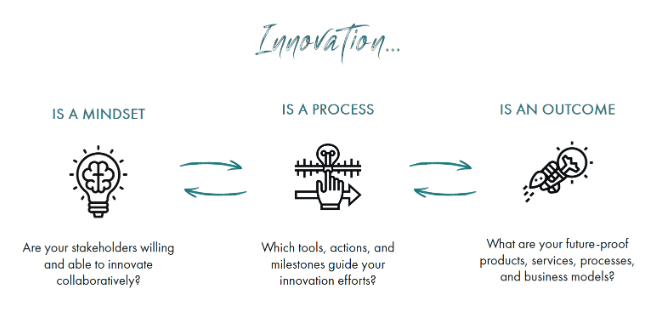The technology sector continues to evolve at an unprecedented pace, with new programming languages, frameworks, and platforms emerging regularly while established tools become obsolete within years rather than decades. From artificial intelligence and machine learning to cloud computing and cybersecurity, technological advancement creates both opportunities and challenges for professionals seeking to build sustainable careers in digital fields. Amid this constant change and the pressure to master an ever-expanding array of technical tools, a fundamental truth emerges: the most successful technology professionals are distinguished not by their mastery of specific tools or languages, but by their approach to learning, problem-solving, and adapting to new challenges.
Understanding the Technology Professional Mindset
Modern technology career success increasingly depends on developing mental frameworks and approaches that transcend specific technical skills or tool proficiency. The technology professional mindset encompasses boundless curiosity about how systems work, resilience when facing complex problems or failures, and a systematic approach to breaking down challenges into manageable components. This mindset prioritizes learning agility over static knowledge, creative problem-solving over rote memorization, and systems thinking over isolated skill development.
Professional technology environments reward individuals who demonstrate intellectual flexibility, comfort with ambiguity, and the ability to synthesize information from multiple sources to create innovative solutions. These cognitive approaches enable technology professionals to adapt quickly to new tools, understand complex system interactions, and contribute meaningfully to teams regardless of their specific technical background or experience level.
The Evolution of Technology Hiring and Evaluation
Leading technology companies have shifted their hiring practices to emphasize problem-solving capabilities, learning potential, and collaborative skills alongside technical competency. Interview processes increasingly focus on thought processes, approach to challenges, and ability to communicate complex ideas rather than testing memorized knowledge of specific technologies or frameworks.
This evolution in hiring practices reflects the recognition that specific technical skills can be taught relatively quickly, while the mental habits and approaches that enable continuous learning and effective problem-solving require more time and intentional development. Organizations value employees who can adapt to changing technology landscapes, contribute to cross-functional teams, and approach challenges with creativity and persistence.
Developing Growth-Oriented Mental Habits
The cultivation of effective technology professional mindsets requires intentional practice of specific mental habits and approaches that support continuous learning and adaptation. These include embracing uncertainty as a natural part of the learning process, viewing failures and errors as valuable feedback rather than setbacks, and maintaining curiosity about how different systems and technologies interconnect.
Successful technology professionals develop systematic approaches to acquiring new knowledge, including effective research strategies, community engagement, and hands-on experimentation. They practice explaining complex concepts in simple terms, regularly reflect on their learning processes, and seek feedback from peers and mentors to accelerate their professional development.
Practical Approaches to Mindset Development
Building effective technology professional mindsets involves specific practices that can be implemented regardless of current skill level or experience. These include cultivating radical curiosity through regular exploration of new technologies and concepts, engaging with diverse technical communities and perspectives, and undertaking hands-on projects that solve real-world problems.
Additionally, developing strong technology professional mindsets requires practicing resilience through deliberate exposure to challenging problems, building communication skills through teaching and explaining technical concepts to others, and maintaining awareness of broader technology trends and their implications for different industries and applications.
Career Transition Success Stories and Patterns
Numerous professionals have successfully transitioned into technology careers by focusing on mindset development rather than attempting to master every possible technical skill before beginning their career change. These individuals demonstrate common patterns including systematic learning approaches, project-based skill development, and emphasis on problem-solving capabilities over theoretical knowledge.
Successful career changers typically focus on building portfolios that demonstrate their thinking processes and approaches to challenges rather than simply showcasing technical proficiency. They leverage their existing professional experience and domain knowledge while developing complementary technical skills, creating unique value propositions that differentiate them from traditional technology backgrounds.
The Role of Continuous Learning in Technology Careers
Technology career sustainability requires embracing continuous learning as a core professional competency rather than viewing it as an additional responsibility. This involves developing effective learning strategies, building networks of peers and mentors, and maintaining awareness of industry trends and emerging technologies that may impact current and future work.
Successful technology professionals treat learning as an ongoing investment in their career resilience and adaptability. They develop systems for staying current with relevant developments, experimenting with new tools and approaches, and contributing to professional communities through knowledge sharing and collaboration.
Future Implications for Technology Professional Development
As technology continues to evolve rapidly, the importance of adaptable mindsets over specific technical skills will likely increase rather than diminish. Emerging technologies like artificial intelligence, quantum computing, and advanced automation will require professionals who can quickly understand new paradigms, adapt existing knowledge to new contexts, and collaborate effectively across traditional discipline boundaries.
The most resilient technology careers will belong to individuals who combine deep curiosity with systematic learning approaches, technical competency with strong communication skills, and specialized knowledge with broad perspective on how technology impacts different aspects of business and society.
Building Sustainable Technology Career Foundations
Creating lasting success in technology careers requires balancing technical skill development with mindset cultivation, recognizing that both elements contribute to professional effectiveness and career satisfaction. This involves setting learning goals that emphasize both capability building and mental habit development, seeking opportunities that challenge existing assumptions and approaches, and maintaining perspective on how technical work contributes to broader organizational and societal goals.
Additionally, sustainable technology career development benefits from building diverse professional networks, contributing to communities and knowledge sharing, and maintaining awareness of how technological change creates both opportunities and challenges for different industries and professions.
Conclusion
The technology sector's rapid evolution and increasing complexity make mindset development more valuable than ever for professionals seeking to build meaningful and sustainable careers in digital fields. While technical skills remain important, the ability to learn continuously, solve problems creatively, and adapt to changing circumstances determines long-term career success and satisfaction. Technology professionals who prioritize developing growth-oriented mindsets alongside technical competencies position themselves to thrive regardless of which specific tools or technologies dominate their fields. As the pace of technological change continues to accelerate, those who approach challenges with curiosity, resilience, and systematic thinking will create the most value for their organizations and communities while building careers that remain relevant and rewarding throughout their professional lives.
Would you like this article adapted for a specific publication, such as a professional development journal, technology career newsletter, or workforce development blog?



